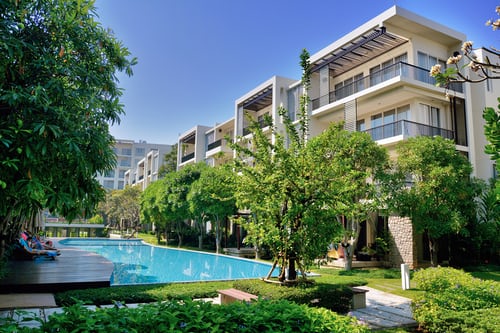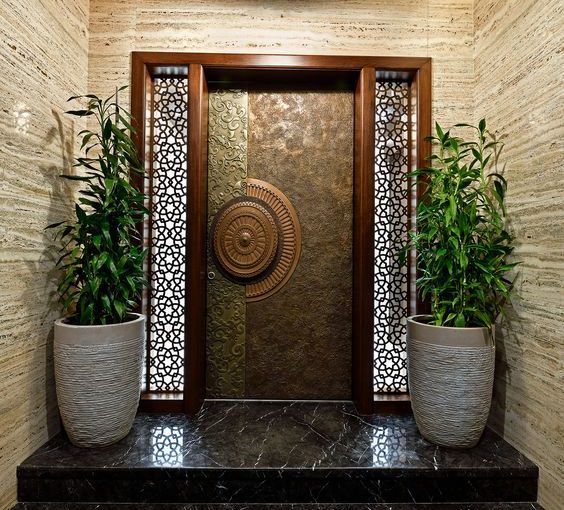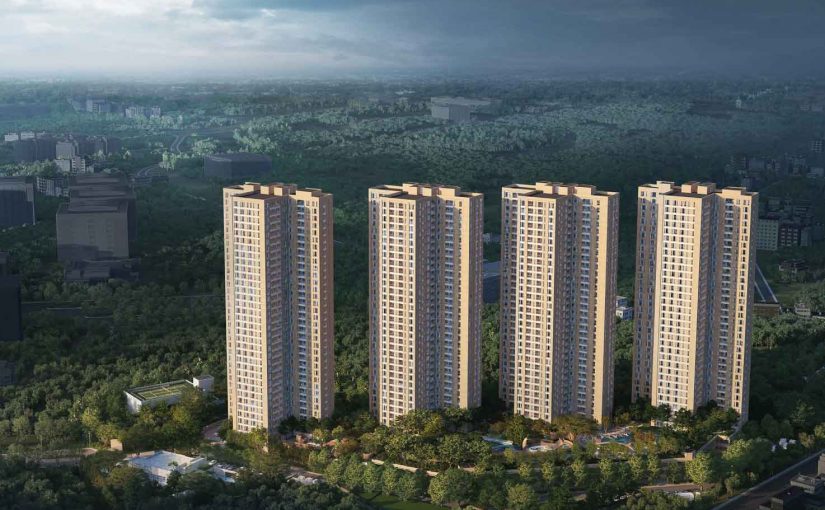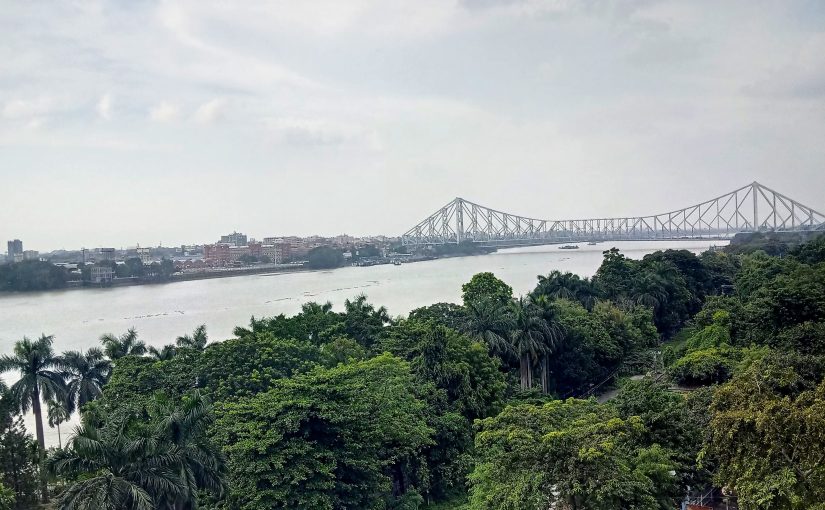By
|
Getting your Trinity Audio player ready...
|
The Corona pandemic severely affected economies in the past couple of months with both investors and real estate markets experiencing an unprecedented slump. To stimulate traction in the market amid a prolonged slowdown, the Government of India reduced the gst rate on real estate property transactions significantly.
The benefits of the Goods and Services Tax (GST) can’t be overstated. Introduced to create One Nation—One Tax—One Market, the uniform tax system certainly holds promise for India. Imposed by the Government of India at the national level, GST applies to sellers, manufacturers, and consumers of goods and services. Similar to VAT, GST is levied at every stage of the supply chain and consumers pay the GST amount applied by the last dealer or supplier in the cycle.
The effect of the GST tax laws largely affects the prices of goods services. Since the real estate business in India does not directly fall under this bracket, the market is not entirely under the radar, but the gst rate on real estate did affect several services and activities in the sector that are taxable.
Since the implementation of GST came into force in July 2017, many changes have been made to this tax regime in a short period of time. Let’s observe the impact of gst rate on real estate in India:
- GST on affordable housing
- GST on luxury property
- GST on construction services
- GST on maintenance charges for housing societies
- GST on rental income
- GST on a home loan
- GST on stamp duty and registration charges
- Land transactions are exempted from GST
What is GST rate on Real Estate?

Before the implementation of the GST regime, several taxes such as VAT, stamp duty, service tax, registration charges, etc. were paid by home buyers. However, after the establishment of the GST laws, homebuyers have to pay only on under-construction properties.
“GST is exempted on ready for sale or completed properties that have a legitimate Completion Certificate. In other words, GST is paid by investors and home buyers while investing in under-construction properties.” GST only applies to under-construction affordable and luxury housing to which a completion certificate has not been issued.
GST on under-construction affordable housing
Based on the GST regime, housing units worth up to Rs 45 lakhs come under the bracket of ‘affordable housing.’ However, along with the price range, the unit must also conform to certain measurements. For instance, a residential unit in a metropolitan city meets the criterion of an affordable house when it costs up to Rs 45 lakhs and measures up to 60 sq metres (carpet area).
The city of Kolkata, along with Delhi-National Capital Region, Bengaluru, Chennai, Hyderabad, and Mumbai are metropolitan cities. Therefore, a residential unit in any other Indian city except these, qualify to be an affordable house in real estate India if it costs up to Rs 45 lakhs and has up to 90 sq metres of carpet area.
Homebuyers can save more on their purchase with even a minute reduction in GST rate that certainly contributes in making the property affordable. GST for under-construction houses under Rs.45 lakh and government-backed housing schemes is 1%.
GST on under-construction luxury property
According to the new GST regime, GST for a luxury property is 5%, however, homebuyers cannot claim any input tax credit on it. As a result, with the implementation of the GST rate on real estate, you will save more on property purchase than the previous tax regime.
Input tax credit means that at the time of paying tax on output or final product, you can reduce the tax you have already paid on inputs. So if the tax payable on your output or final product is Rs. 2,000 and you have paid Rs. 1,200 on inputs like purchasing materials to make the final product, you can claim input credit and pay only Rs. 800 in taxes.
GST on construction services
8% GST is applied on under-construction homes bought under the PMAY Credit-Linked Subsidy Scheme (CLSS); 12% GST is levied on under-construction homes bought without the subsidy, and finally 12% GST is applicable on works contract for affordable housing.
GST on maintenance charges for housing societies
If you reside in a housing society, to pay GST, you must be aware of the following conditions— each member of the society should pay more than Rs 7,500 per month as maintenance charge. Secondly, the annual turnover of the Resident Welfare Association (RWA) should be higher than Rs 20 lakhs. Let’s consider these conditions closely—
Flat owners paying a minimum of Rs 7,500 as a maintenance charge to their housing society are liable to pay 18% GST on residential property. 18% tax on the entire amount applies to housing societies or residents’ welfare associations (RWAs) that collect Rs 7,500 per month per flat. However, housing societies that have an annual turnover of less than Rs 20 lakhs, are entirely exempted from paying GST.
Furthermore, as per the Government regulations, the entire amount is taxable if the charges are over Rs 7,500 per month per member. For instance, in case the maintenance charges are Rs 9,000 per month per member, the 18% GST on flats is payable on the entire amount of Rs 9,000—not on Rs 1,500 (Rs 9,000 minus Rs 7,500). Moreover, owners with multiple flats in the same housing society are taxed separately for each unit.
Finally, RWAs can claim ITC on tax paid by them on capital goods (water pumps, generators, lawn furniture, etc.), goods (sanitary/hardware fittings, taps, pipes, etc.), and input services such as repair and maintenance services.
GST on rental income
As per the GST regime, renting out of property for business purposes is regarded as a supply of services. 18% GST is applicable for renting out of the property for commercial purposes. However, landlords renting out property for residential purposes are exempted to pay GST on the real estate income.
However, should the rental income amount per year exceed Rs 20 lakhs, 18% GST is levied on residential flats. Landlords falling under this rental income bracket also need to register on the Government’s GST website, to pay the GST on their rental income.
The threshold limit for GST has been increased from Rs 10 lakhs per annum to Rs 20 lakhs.
GST on a home loan
GST is not applicable on home loan repayment from the borrower’s side. However, financial institutions offer several ‘services’ as part of home loans. Since these are services, the application of GST is evident. Therefore, if you are taking a housing loan, you must take into account the GST charges on processing fee, technical valuation fee, and legal fee bank.
GST on stamp duty and registration charges
Stamp duty and registration charges are applicable on property purchases for real estate in India, despite the demands made from time to time to clear the charges. State governments charge stamp duty in the range of 5%-10%, whereas the registration charge is either 1% of the property value or a standard fee.
There is however no GST on the registration charges that are paid while registering a property. Experts doubt the possibility that stamp duty and registration charges will be subsumed in the future.
Ready-to-move properties are exempted from GST; GST rate on real estate applies only to under-construction properties
The real estate sector does not fall under the ambit of the GST tax law. Therefore, the tax rate applies to property buildings that come under ‘work contracts.’ Real estate developers can therefore not charge GST on the sale of ready-to-move-in homes.
Upon completion of the real estate property and after receiving the occupancy certificate, the property is considered as ready-to-move-in and falls out of the purview of a work contract. In other words, the GST is applicable on the sale of under-construction property projects that are yet to receive OCs.
In the pre-GST regime, homebuyers had to pay service tax on the purchase of ready-to-move homes.
Land transactions are exempted from GST
The sale of land is also exempted from GST and falls out of the purview of the GST on construction services. The main reason for this is the non-involvement of transfer of any goods or services. Since the cost of land plays an important role in determining property prices, with GST a standard abatement of 33% is applied on the total contract value, towards the value of land for taxable real estate transactions.
Important takeaways about GST rate on real estate

- Residential property with a maximum of 15% commercial space is treated as residential property.
- 12% GST is levied on a commercial unit.
- Landowners have to pay GST while renting out property for business or to commercial firms.
- On home loans, GST is applicable on services like legal fee, processing fee, etc.
- Even after applying for GST, the cost of under-construction houses is cheaper than ready to move in projects.
In closing
If you are intending to invest in real estate, this is good news for you, as the reduction in gst rate on real estate has in return minimized the buyers’ pay-out by 4%-6% on the overall purchase.
As a result, the new tax rate without input tax credit (ITC) is levied on all new real estate projects. Furthermore, for real estate projects that were incomplete as of March 31, 2019, the Government gave builders a one-time option to choose between the old and the new rates by May 20, 2019 for their ongoing projects. This decision was taken in the light of concerns raised by the developer community over the tax liability in the absence of ITC.
You can also refer to our blog “real estate in india: Important documents” and “Real Estate laws in India: Everything you need to know“
Leave a comment







